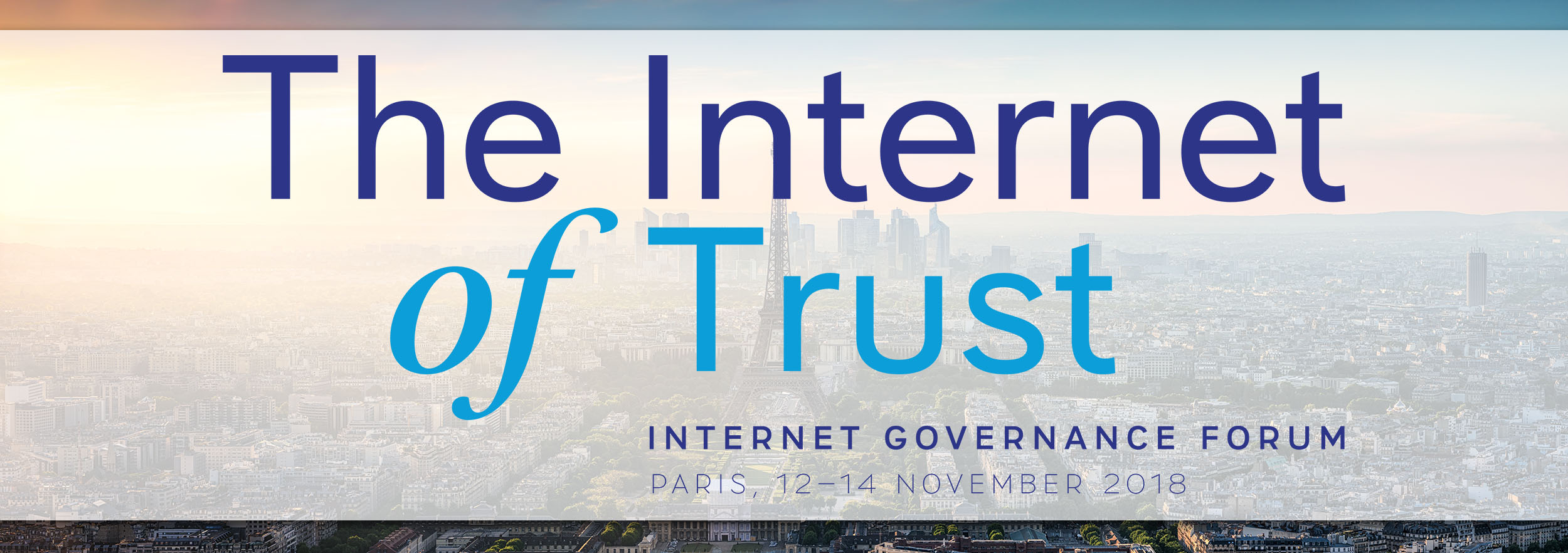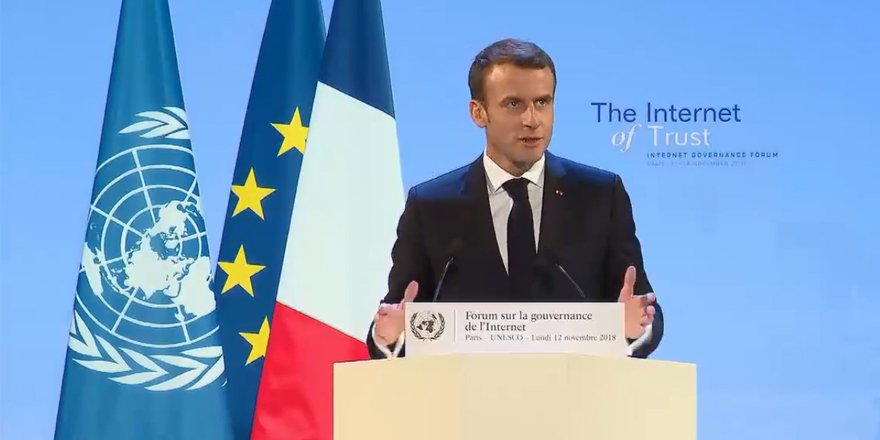 Gonzalo López-Barajas/ @Gonzalo_LB
Gonzalo López-Barajas/ @Gonzalo_LB
Public Policy Manager, Telefónica.
Within a somehow downbeat mood through the preparation process, IGF 2018 was to take place in Paris form November 12th to the 14th with all sights put on keeping the Internet Governance Forum relevant. And president Macron came to its rescue.
The president of the French Republic took the stand for the Opening Ceremony, and for 45 minutes, he presented his views on Internet challenges and a way forward. He started by acknowledging the transformational and positive effect the Internet has had up to now in our lives, how all of us take Internet for granted and could not even image living without it. But also admitted we are at a juncture; Internet and democracies are at risk due to the many existing threats: from extremism, terrorist and authoritarian regimes exploiting its weaknesses in their favour, to the potential end of independent thinking backed up by substitution of Universality principle by Neutrality, and the propagation of dangerous ideas of those sharing different values than ours in the name of Net Neutrality.
By identifying the two governance trends in the Internet, the “Californian” model, based on a hands-off approach where dominant private sector actors self-regulate themselves through a not very democratic process, and the “Chinese” model, where a State exerts total control over the Internet and its players, Macron showed his preferred approach: a model somehow in between, where the Internet and its actors are regulated in the name of public good in order to have an open, free and secure Internet. This right kind of regulation shall be introduced through a new multilateral process, involving not just States but all the actors, working hand in hand with Civil Society and the private sector.

Macron announced organizers of three sequential European IGFs, Switzerland-2017, France-2018 and Germany-2018, had the joint view IGF should not just be a place to debate and deliberate, but a process to make more concrete proposals. This reform movement was already being promoted this year at the IGF by tabling a list of the outcomes of the debates.
As for the issues the IGF could start working on by producing more concrete outcomes were privacy and personal data protection, and content regulation which should differentiate topics such as terrorism, child-pornography where global bold action was needed, from those issues subject to different regional or national interpretation and thus requiring different geographical approaches such as hate speech, libel, online harassment, cyber bulling, and the need to change intermediary liability by ending to differentiate between content providers and those hosting the content. He also supported a global approach for cybersecurity, asking to entrust the IGF with the mandate to monitor the implementation of the “Paris call for trust and security in cyberspace”. Finally, he also included as a relevant topic to work on the preservation of Internet’s ability to create economic value, by addressing intellectual property rights, upholding competition law in cyberspace, and digital taxation to ensure a fair distribution of the tax burden.
Macron’s speech at the opening ceremony certainly revolutionised the IGF. Not only we had a Head of State, from a relevant country in the global political scene, talking for over forty-five minutes about the Internet, its governance and the IGF. This Head of State also strongly supported the IGF, asking for a UN Under-Secretary General to be tasked with its management, and not to keep the IGF just at the debating level but shift it towards concrete proposals production. He also laid down on the table in a holistic structured way the challenges Internet and the society are confronting, challenges that many have discussed about privately, but that so far nobody has been willing to bluntly address in public. And more importantly, he proposed a solution for these challenges: regulating the Internet through a new multilateral model process including all.

These last two topics raised the eyebrows of many, fully disagreeing with the view Internet should be regulated and with the application of a new multilateral governance model, as it may imply a shift away to a more Governmental led process from current model where all stakeholders participate on an equal footing. But it is also true that international law and policy making have been based on multilateral processes, and Macron call may open up this processes to be more inclusive.
Certainly I guess we all should agree Macron really put the IGF in the spotlight again: he openly expressed his views, those of the French Government, at the IGF; made a wake-up call, pointing to concerns shared by many, and proposed a potential solution. President Macron has walked the talk, showing us how relevant the IGF (already) is and getting everyone to turn their heads to Internet Governance policy issues. It is now our turn to accept his invitation and decide among all the route for the future Internet we want.
Ending with an optimistic view on the future of the IGF, let me highlight Germany has already presented the website for 2019 IGF, which is to take place in Berlin from November 25th to the 29th 2019. Kudos for the great and long term focused German organizational skills.
See you in Berlin next year!






